Liquid Handling & Fluidic Components for Clinical Diagnostics
MK Fluidic Systems designs and manufactures precision syringes, probes, valves, tubing assemblies, and sub-assembly modules for the clinical diagnostics industry. Our products are made of the highest quality materials and available for a wide range of applications, including: liquid/gas chromatography, clinical diagnostics, and autosamplers.

A FLUID SYSTEM MANUFACTURER THAT UNDERSTANDS THE CLINICAL DIAGNOSTICS INDUSTRY
When working in the clinical diagnostics industry, it’s important your equipment is methodically designed with your system needs in mind. Even small contaminants can cause problems in sensitive instrumentation. MK Fluidic Systems ensures that all our components are thoroughly cleaned, well handled, and quickly packaged to prevent contamination. Whether dealing with sample injections or transfers, our products can meet your performance requirements.
At MK Fluidic Systems, our experienced engineers make it easy to collaborate with us to design and engineer all of your custom fluid handling component needs. By working with MK Fluidic Systems and selecting quality components, you ensure that your equipment performs safely, accurately, and confidently.
CLINICAL DIAGNOSTICS FLUID SYSTEM PRODUCTS

SYRINGES
We offer a broad range of syringe designs and seal configurations for many applications. We utilize high-purity borosilicate glass and fluoropolymers in our wetted materials to the ensure precision, accuracy, and cleanliness of each sample analysis. With injection volumes of 10µL to 50mL, our products can meet your dispensing requirements.
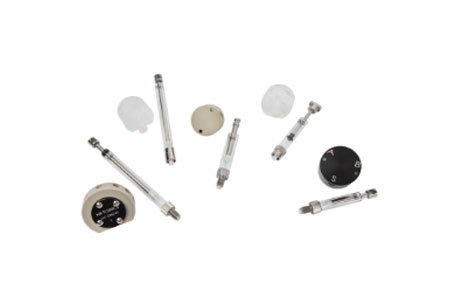
VALVES
Available in loop, switching, and distribution configurations, our valves are capable of meeting your system specifications. Improve the purity of your flow path by utilizing inert materials such as PTFE, PCTFE, PFA, UHMW-PE, and PEEK.
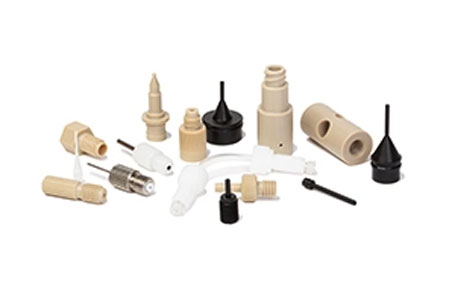
TUBING & FITTINGS
We offer flanged and flangeless fittings with our tubing sets and can accommodate custom requests for clinical diagnostics applications. Fittings are available in both flat-bottom and cone-tipped designs. All can be sold separately or assembled to fit your specifications.
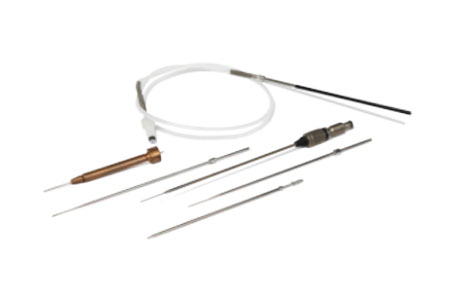
NEEDLES, PROBES, & PIPETTES
These critical components of the sample flow-path are responsible for transferring the sample between the vial and instrument inlet. Consistent injection volumes and minimized carryover are critical for reliable results.
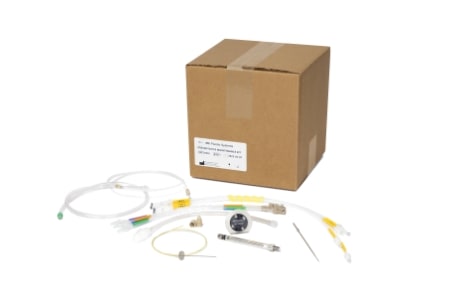
SERVICE KITS
Providing the clinical diagnostics industry with a convenient package for ease of servicing replacement parts. These kits include all of the syringes, valves, fittings, tubes, needles, filters, fittings, and more that are a part of the regular service/maintenance program for your instrument. Simplify your purchasing and kitting requirements by having everything you need in one prepackaged and labeled kit.
COMMON LIQUID HANDLING SYSTEM APPLICATIONS FOR CLINICAL DIAGNOSTICS PRODUCTS
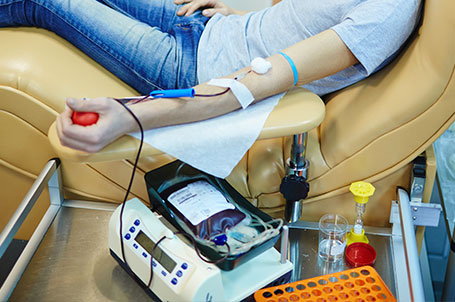
Blood Safety
Blood banks are a critical component of healthcare infrastructure. Ensuring that donations are properly identified and pathogen free is critical to ensure the safety of the supply chain. Automated testing systems now help healthcare professionals perform task orders of magnitude more quickly and reliably than traditional manual methods. Using components which will stand up to frequent cleaning cycles and minimize carryover is very important to reliable system function.
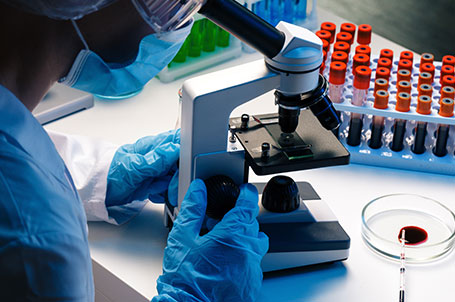
Blood Testing
Blood tests are often used in healthcare to determine certain biochemical or physiological conditions. These tests are often critical in determining the presence of disease, establishing complete blood count, or detecting the presence of particular substances in the blood. It’s important to select the proper components for your sampling system to avoid complications such as the unintentional lysing of cells.
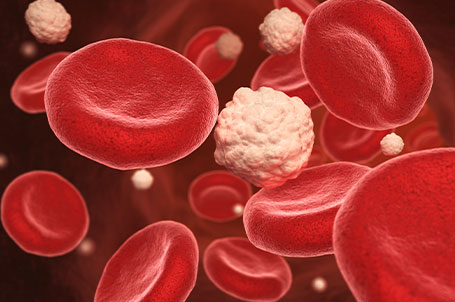
Immunohistochemistry
Immunohistochemistry (IHC) is a process used to detect the presence of certain proteins which can aid in the accurate identification and diagnosis of tumors. Through an application of primary and secondary antibodies, these systems create colored precipitates in the biopsy/sample which can be visualized under a microscope. The chemistries involved in this process are nuanced and care must be taken to ensure consistency. Any changes in concentrations, wash duration/volume, or contamination can affect results.